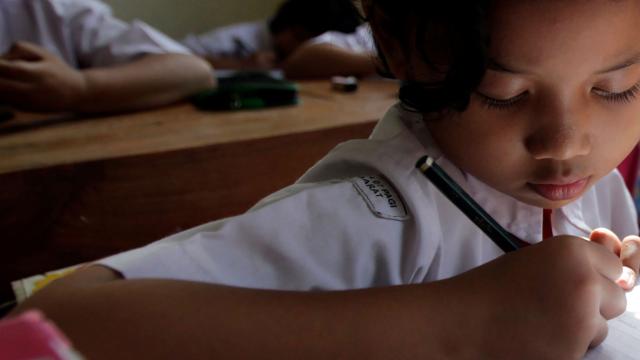Ajay Pinjani (Learning Manager) and Priyanka Upreti (Evidence Hub Manager) share how we engage with and promote learning with our unique community.
This year Global Schools Forum (GSF) grew to a community of more than 100 organisations working to improve education at scale for underserved children in low- and middle-income countries. From the start, GSF has worked to build meaningful relationships within our community of non-state practitioners and to create an enabling environment for sharing knowledge and expertise. Since 2017, we have fostered learning and collaboration through a variety of ways including Communities of Practice (CoP). Through this blog, we would like to share with you how communities of practice have helped deepen engagement and learning for our community.
In the education ecosystem there are many ways of creating and running communities of practice. For GSF, the design of this medium is profoundly linked to who we are. We are a unique collaborative community of non-state practitioners across low- and middle-income countries promoting South to South learning. Our distinctive value addition is building purposeful networks and driving collaborative action.
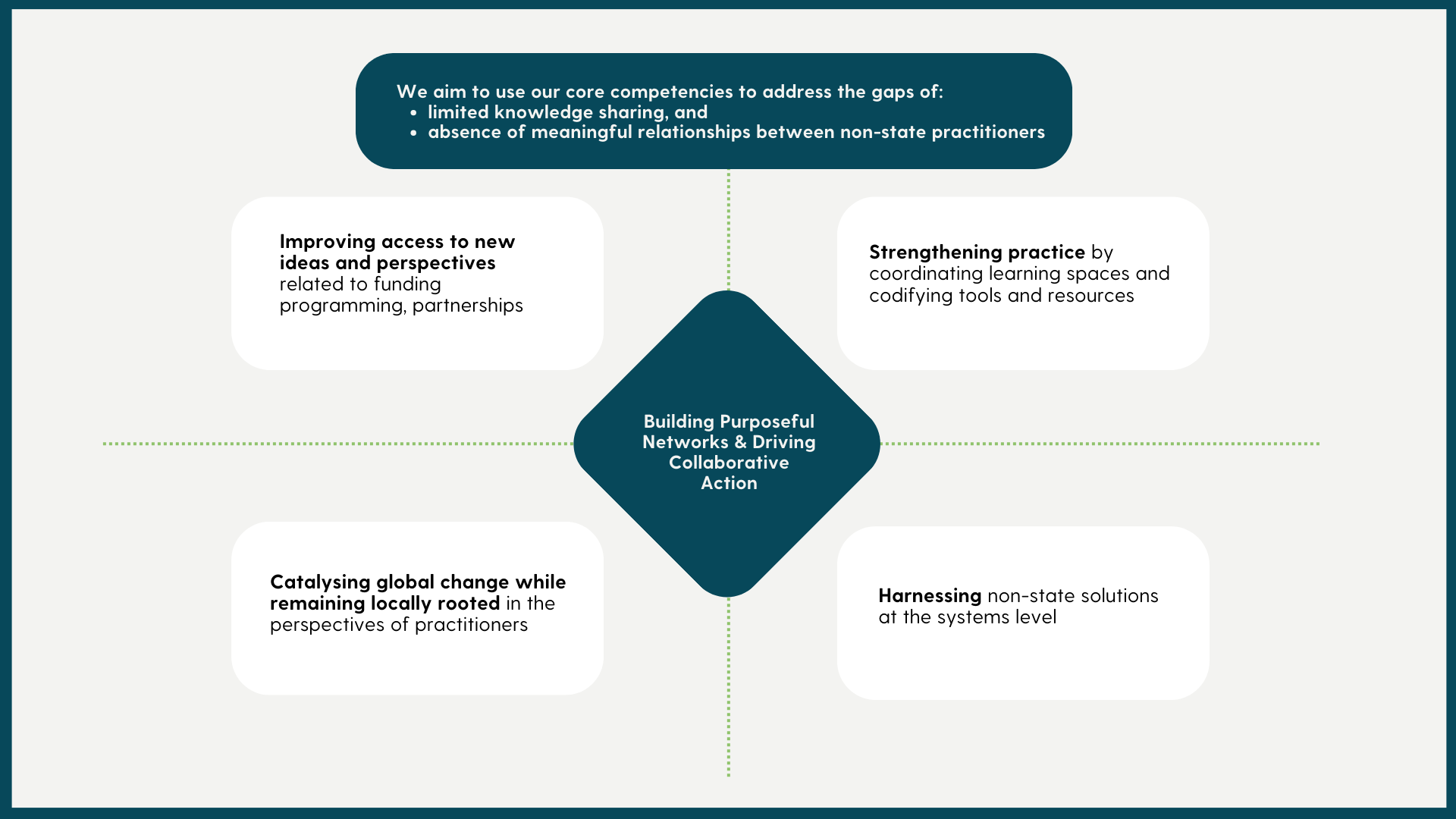
Communities of Practice (CoP) at GSF bring together a group bound by shared expertise, challenges, and an intent to collaborate. Using a Learning Framework that captures four domains – system, organisation, leadership, and school, every CoP is focused on a distinct thematic area based on needs expressed by the GSF community. With the amazing wealth of knowledge, experience, and wisdom in the space, we identify gaps in available knowledge products, and work together to design and develop practice briefs, toolkits, and other outputs which are then disseminated for everyone in the wider education ecosystem to benefit from.
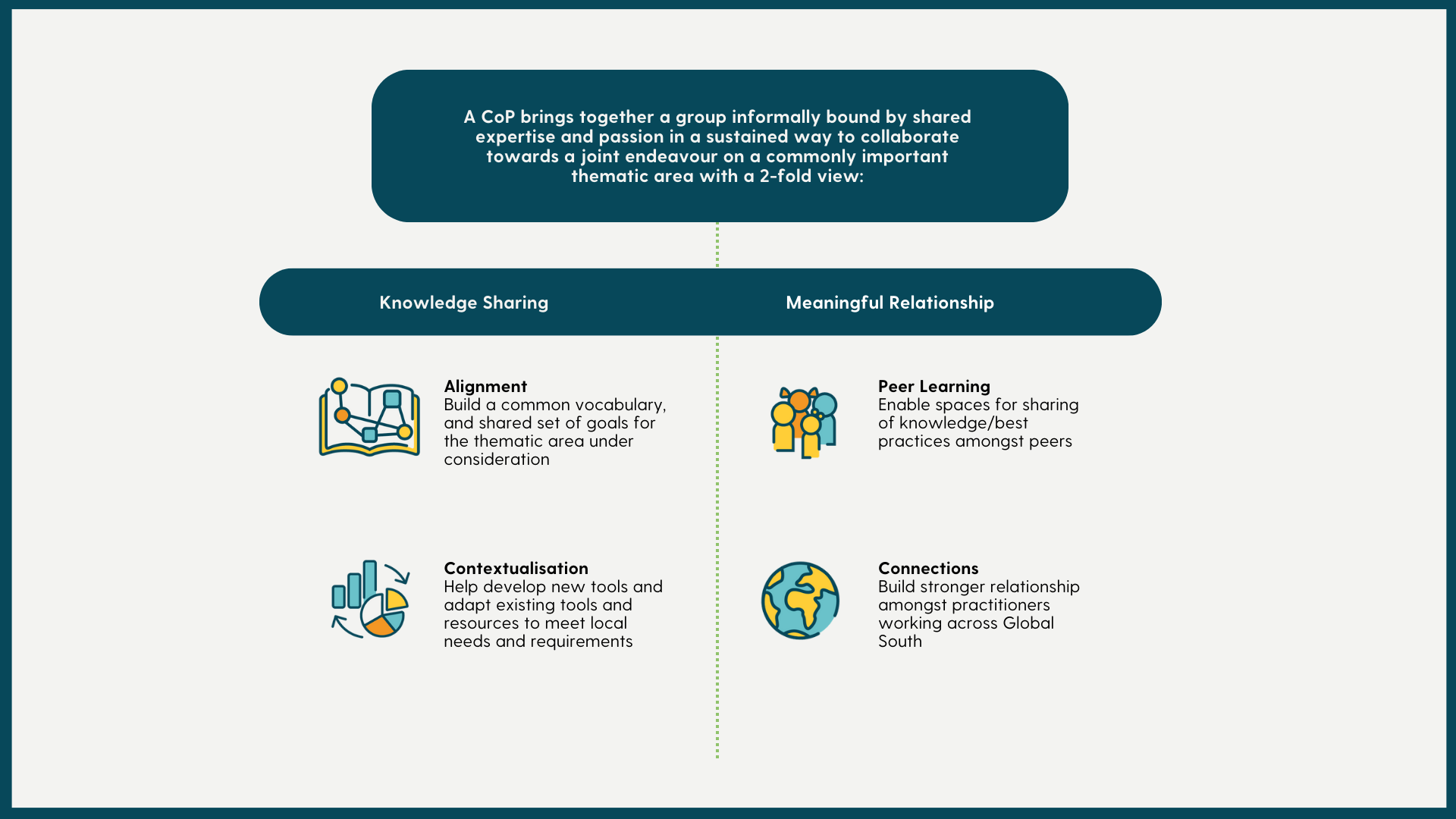
Having dialogue in a trusted space is the key ingredient for unfolding magic of listening, sharing, and collaborating. Through iterating different modalities for learning, we have gathered three simple and powerful learnings:
The communities of practice have allowed us to step back & learn from models around the globe.
- Make everyone visible.
We are not alone in navigating the challenges of providing quality education to learners. Through the ongoing communities of practice on foundational learning, organisations shared different fronts where they have championed regardless of the many systemic and resource constraints. Using the phonics method to ‘teach how to read’ The Luminos Fund shared the power of breaking down reading. Building Tomorrow’s model of leveraging community education volunteers to foster numeracy learning paved a unique and promising way to partner with the community and strengthen their capacity. Kizazi taught us how to integrate a whole child approach to foundational learning to serve the needs of children beyond numeracy and literacy. And Taleemabad demonstrated the power of using technology and interactive visual learning content to enhance at-home joyful learning opportunities for millions of children by making education accessible using television broadcast and teacher support apps. These are only a few examples from a single communities of practice, which reaffirm the significance of bringing to the fore what is possible while celebrating that we are together in this journey. The communities of practice, therefore, play a crucial role in making organizations visible across different geographies and provide a platform to showcase promising education approaches from varying contexts.
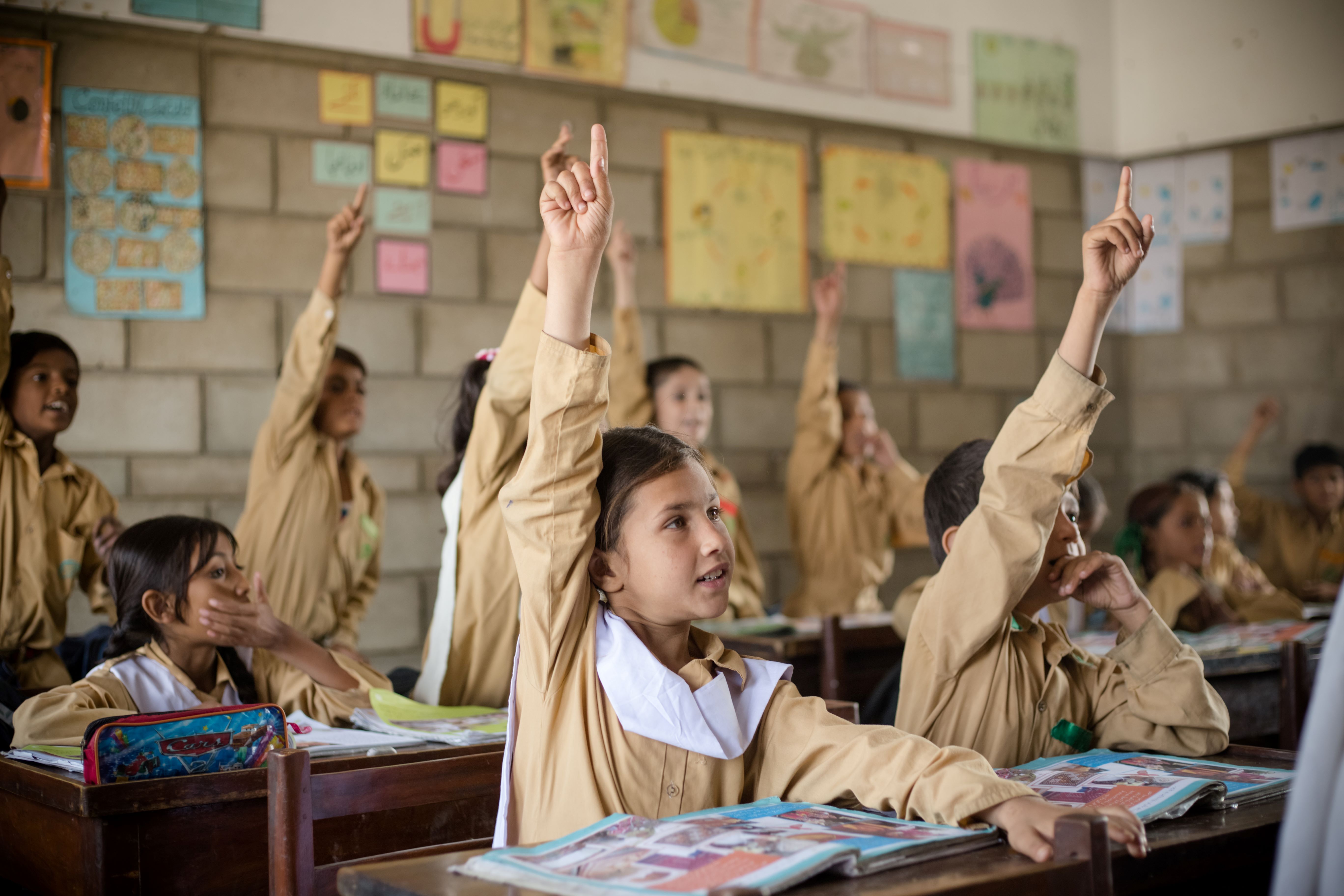
The Citizens Foundation
I feel that the sessions have given me useful insights, ideas and things to think about. What's unlocked for me is how much I need to lift my head and learn from others around the world with similar contexts and issues. Consequently, I also feel frustrated that I have not been able to reach out to and have conversations with folks outside of the sessions.
- Challenge with the intent of learning.
Out of the 244 million children and youth between the ages of 6- 18 reported to be out of school, nearly 178 million drop out at the lower and upper secondary levels. GSF’s communities of practice on secondary education brought together more than 10 organisations’ from over 10 different countries to deliberate upon some very tough questions.
- Which skills are required to strengthen and reorganise the value proposition of secondary education?
- How do we build capacity of teachers and school leaders to infuse the desired skills into the curriculum across our unique contexts?
- What partnerships in our local, regional, and global eco-system do we seek to strengthen our resolve for improving secondary education?
Through engaging in communities of practice, we have learnt the importance of stepping into the discomfort, and encouraging every organisation to share the multi-faceted challenges they experience while being situated in diverse semi-urban, remote, and conflict-ridden contexts. Using the modality of challenge carousels, we have collectively explored and navigated through organizational and systemic gaps, while using the wealth of wisdom and experience in the room to benefit from multiple perspectives. Such conversations have resulted in several outputs that bring forth, case studies like Secondary Education Practice Brief, alternate perspectives including ‘our education system needs a generational firebreak’, and voices from the field - Secondary Education Podcast - Promoting Equality in African Schools.
I love how each session is centered around a particular focus area. You also get a chance to present your own work and get feedback from experts. It always gives me so much hope to see other wonderful people giving their best to ensure that high quality education is accessible to all. There’s so much empathy and compassion in the group and it’s contagious. I’m extremely grateful to be a part of this community.
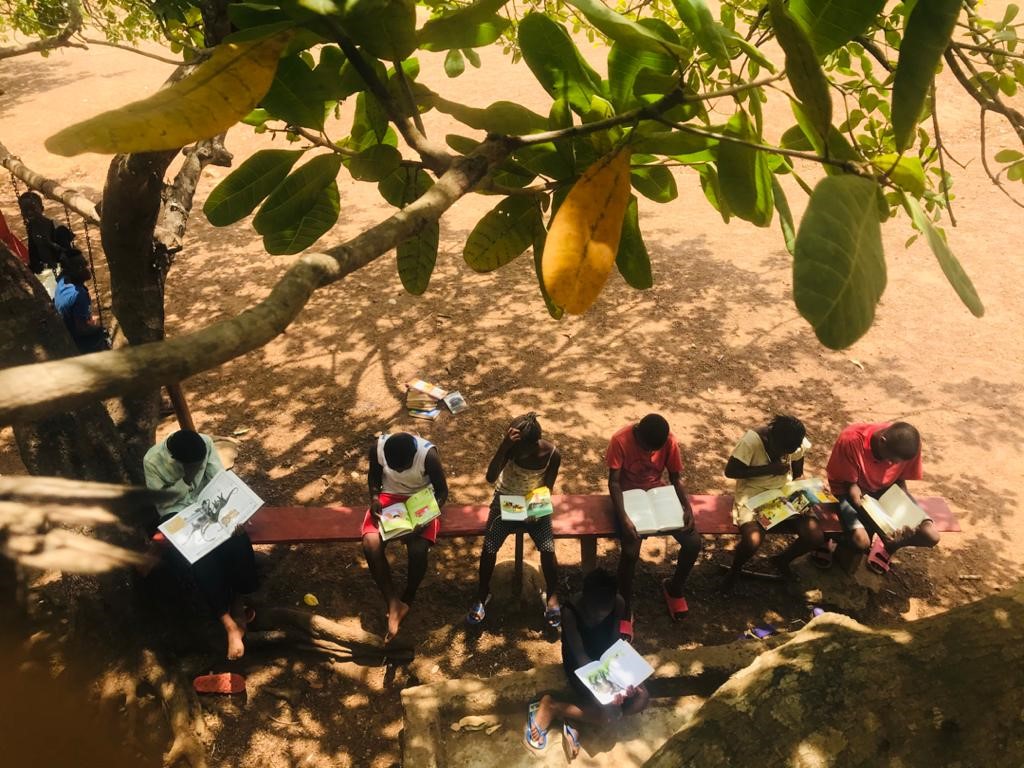
EducAid, Sierra Leone
- Contextualize where possible. Co-create where necessary.
Individuals and organisations across the globe have already contributed immensely to the wealth of knowledge and wisdom needed to strengthen education systems. Through communities of practice, our first attempt is to use and contextualize the skills, knowledge, and perspective accessible to the education eco-system, and where gap continues to exist, co-create knowledge products and share them with the wider community of educators, hoping this drop in the ocean will create its own ripple of learning. With collaboration across our community, some examples of knowledge products we have co-created include Child Safeguarding Toolkit, Diversity, Equity, Inclusion & Justice (DEIJ), and CEO Succession Toolkit among others.
Lastly, to realise our desired impact of creating a strong learning and action network that has better knowledge create and implement effective educational solutions, our engagement is not limited to the GSF community. We know there are many who are sub-consciously waiting to learn from what we share widely. And in that hope, we continue to share both bite-sized learnings and knowledge products with the wider education community.
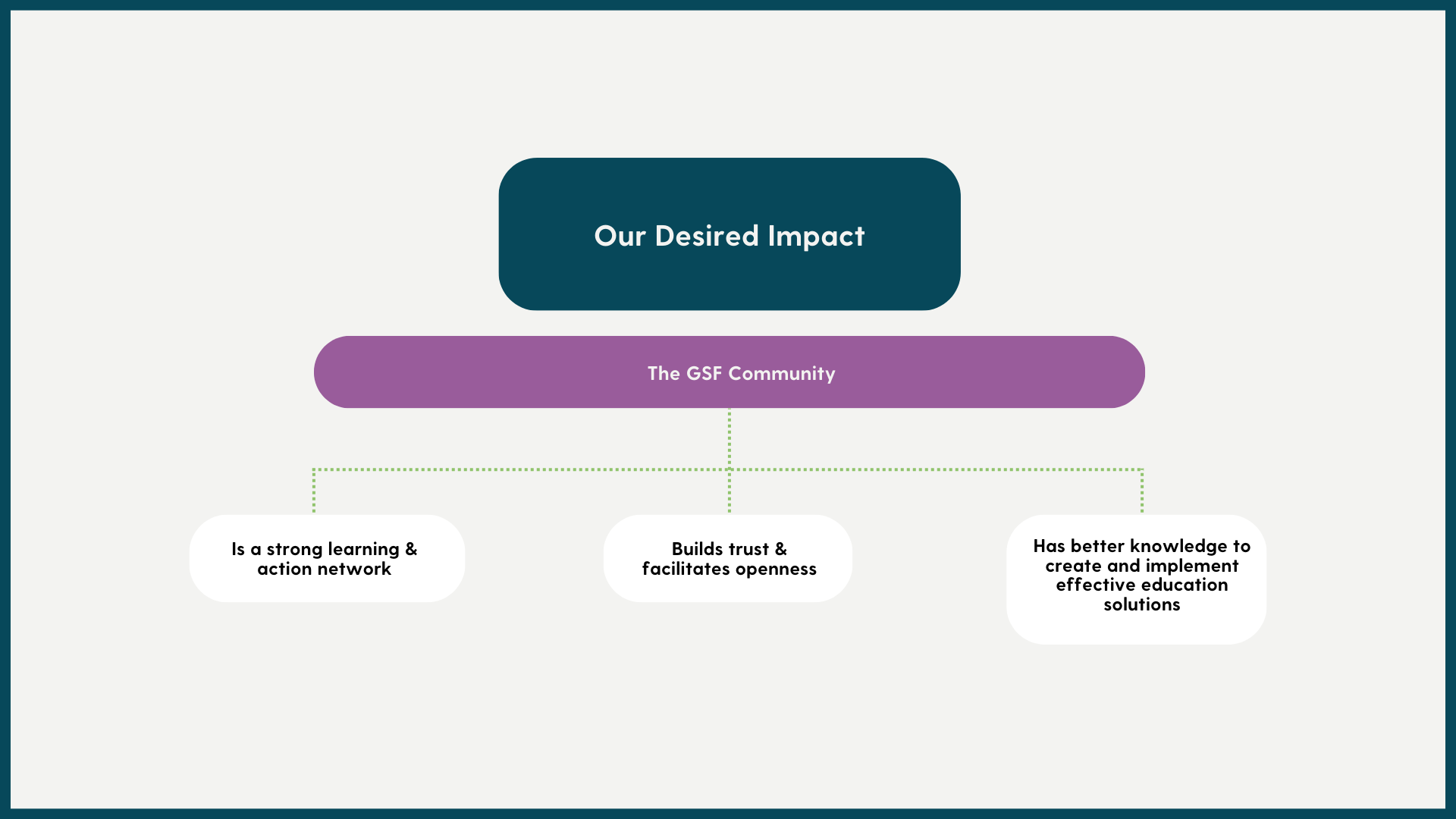
Participating in the CoP enabled me and other members of our team to listen to other organisations and practitioners and discuss ideas with them, as well as clarify our own explanations and thinking about what we do when it was our turn to share. Working through challenges and solutions with other people in similar contexts is a powerful way to learn and develop and has prompted a range of adjustments and inclusions into our own practice.
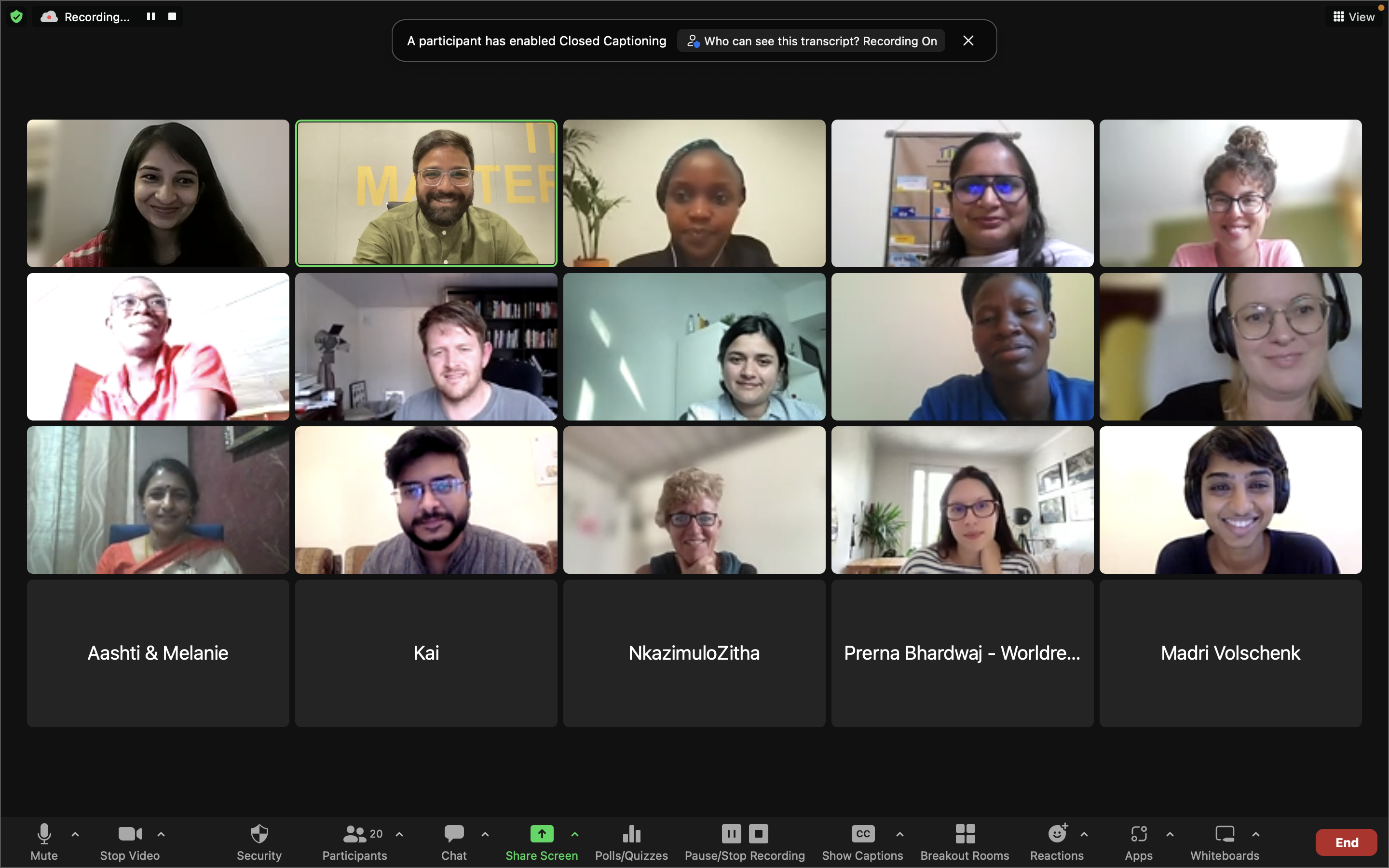
To learn about the ongoing and upcoming communities of practice for this year, keep a look out at our website here. If you are a member of GSF and would like to design communities of practice to engage diverse stakeholders within your organisation, reach out to Ajay to discuss the design and execution journey in more detail. If you are a school, school network or intermediary working with underserved children in low- and middle-income countries and would like to become a member of the Global Schools Forum, visit here.
Looking forward to having you join us in our future communities of practice.

